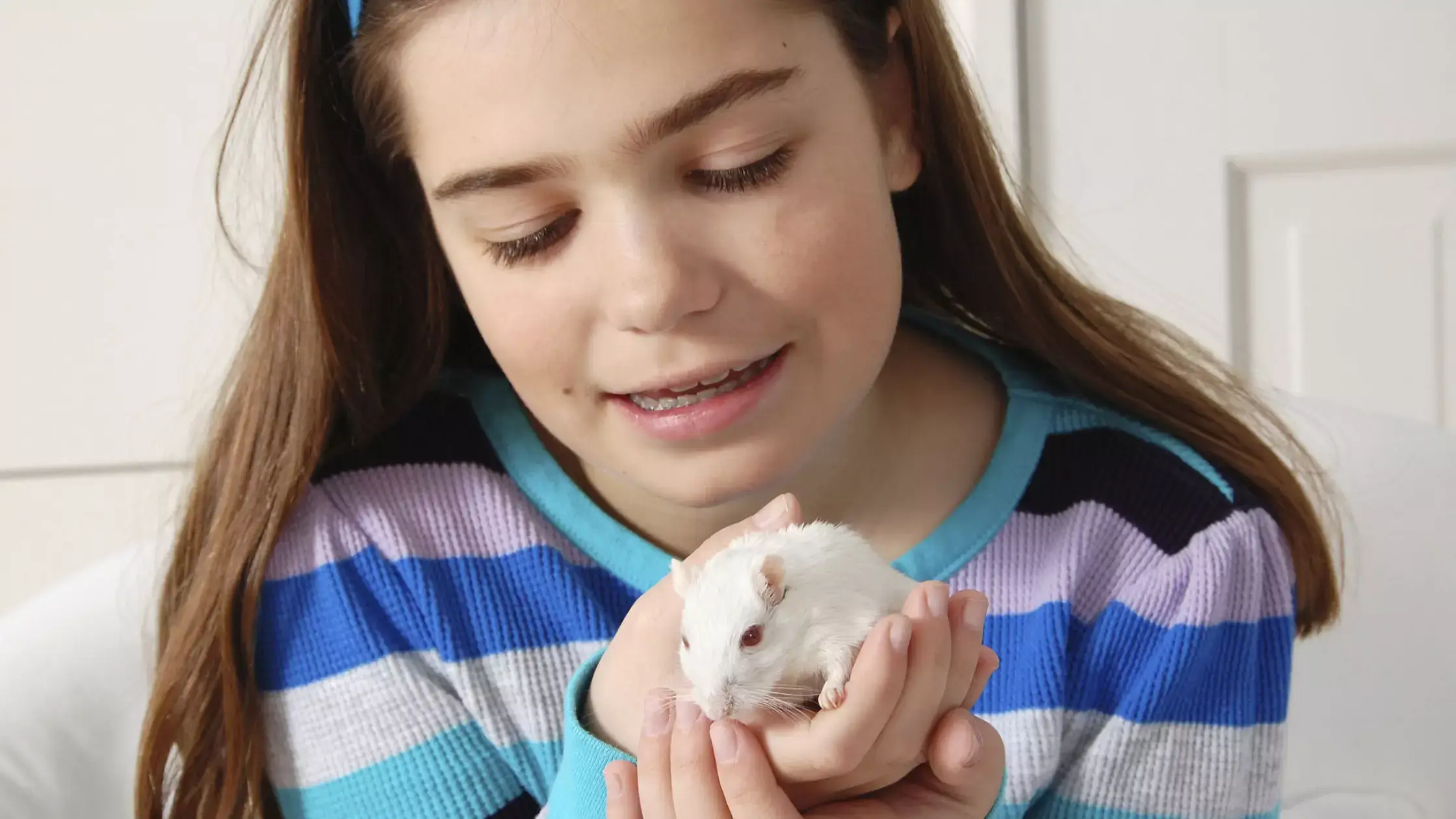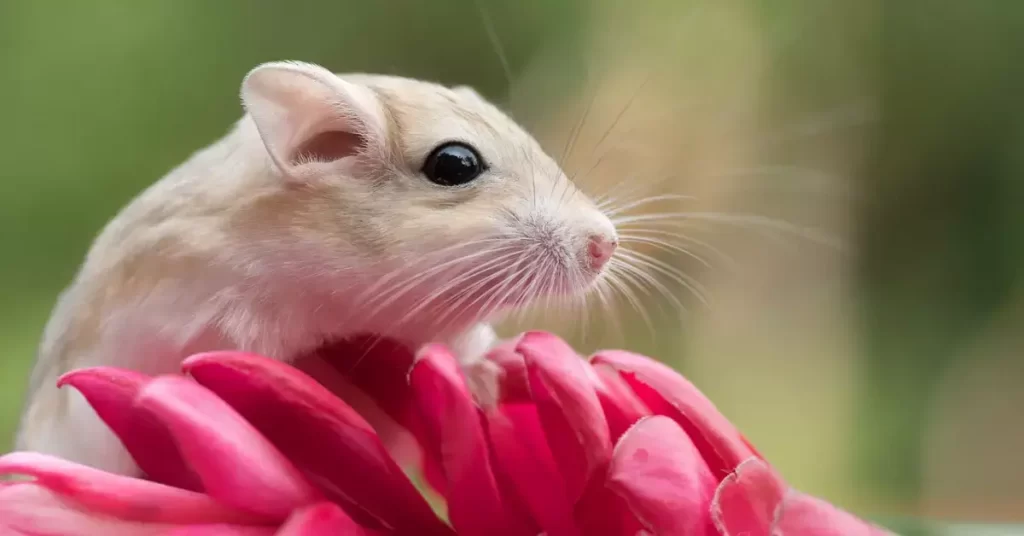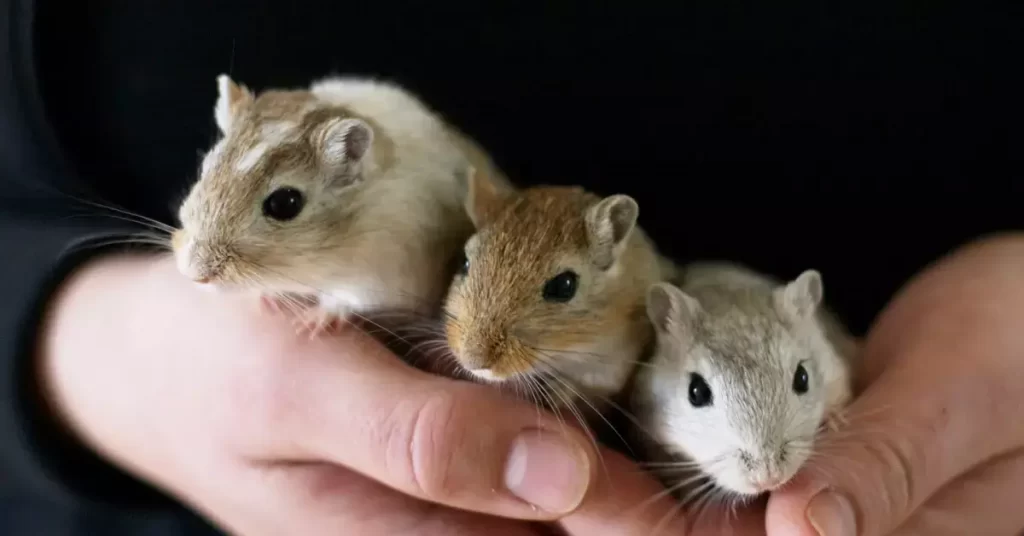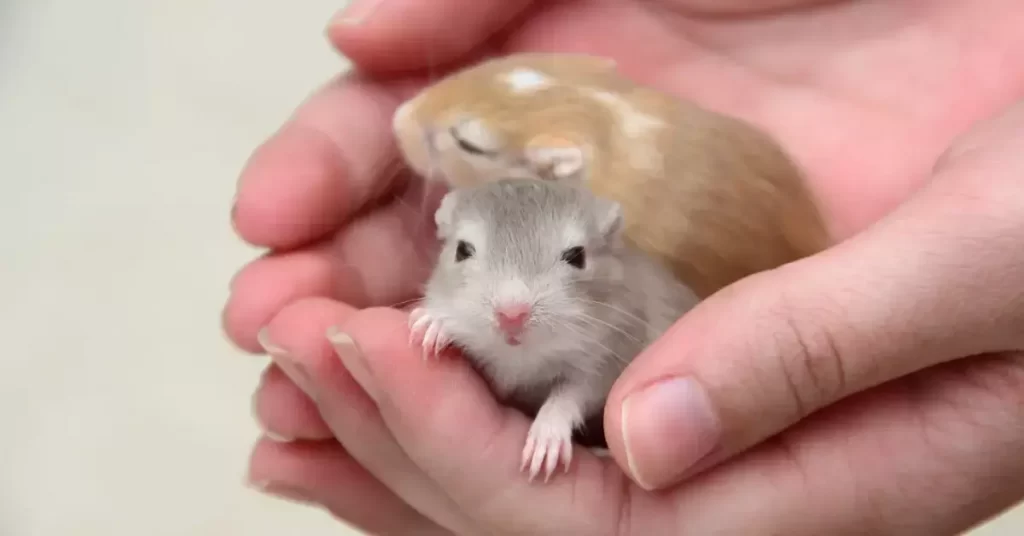Baby Gerbil 101 Care

To call a gerbil a rodent is really an understatement. It’s more like calling a lion an animal. Gerbils are one of the most fascinating, interesting rodents in existence.
They’re social, easy to tame, and have lots of different personalities! And if you’ve never owned any before? Well, then it sounds like they’re just right for you! That’s because there are many things that people don’t know about these animals that could make their lives much easier when caring for them.
So here are all the basics on what makes owning a baby gerbil so great — from how often they need to be bathed to what kind of living environment suits them best and more– so you can get started today!
What Is A Baby Gerbil?

Baby gerbils are young gerbils. They like to run around and play. They like to be petted, but they can bite so you have to be careful when you hold them!
They like to eat veggies and fruits and seeds. Their living environment should be a cage with a solid bottom and lots of tubes for them to run through.
They need to be bathed every week and they should have a lot of bedding to play in. Gerbils can live for up to six years! So if you’re thinking about getting a baby gerbil, be prepared for a long-term relationship!
Baby Gerbil 101 Care:

You may be wondering what you should feed your gerbil, bathe them with, and how to take care of them. here, you will learn the specifics about taking care of a gerbil.
Let’s start with the gerbil diet. Your gerbil eats a variety of things, make sure to feed them high-quality gerbil foods that include seeds, grains, and vegetables. You may actually grow a garden in their cage! Gerbils also require fresh, clean water and small amounts of birdseed.
You should keep your gerbil’s diet relatively simple so they don’t get constipated or even die from blockages when getting too much roughage at once. Always make sure you pay attention to what types of food your gerbil is eating and research if there are any health risks associated with that food.
Gerbils also enjoy a good bath. You should bathe them around once a week using warm water and a gentle shampoo. Be sure to rinse them off well when finished. Towel dry them and put them back in their cage.
Make sure their home is well ventilated, but not drafty. Gerbils are very social creatures that will enjoy living with another gerbil or even a hamster, but you should not put a gerbil with Guinea Pigs.
They can also get stressed when kept alone for too long. They love to explore and can even learn how to use a hamster ball. That way they can go for walks with you or explore another room in your house.
You should also invest in a larger cage than what is recommended at first if your gerbil is an active one. Gerbils should have about three gallons of space to run around in.
Make sure to keep an eye on your gerbil and monitor their health. If they start losing weight, stop eating, or seem lethargic, take them to the vet because it could be a sign of illness.
Gerbils are easily stressed, so keep their environment as stress-free as possible. With a small amount of effort, you can have a happy and healthy gerbil that will provide you with years of enjoyment.
How To House Train Your Gerbil?
When it’s time to start house training your baby gerbil, first place baby gerbil on top of some unfinished wood so that their feet are firmly on the surface.
Using a little bit of cheese or some hay for bait, dangle it just out of reach of his nose. When they scoot toward it to try to eat, pull the treat just out of range and scratch them behind their ears or on their stomach with your fingers.
You want them moving toward the desired behavior more than anything else! If you have more than one baby gerbil, be sure to use at least two pieces of food — one close by but not easily accessible and another farther away but still within sight range.
As your gerbil catches on, you can start to move the food further away, until they’re consistently going to the bathroom in the same spot.
Like other rodents, gerbils have teeth that continue to grow throughout their lives. This means that they need to gnaw on things to keep them trim, so provide your gerbil with a good supply of safe chew toys. You can also give them a small piece of untreated wood to gnaw on.
How To Bathe Your Gerbil?

An important part of keeping gerbils as pets is bathing them. To keep your gerbil happy and healthy, make sure to bathe it once a week using warm water and gentle shampoo. You should also towel dry them and put them back in their cage after bathing.
The ideal temperature of water for a bath is around 80 degrees Fahrenheit or 27 degrees Celsius.
Why Should You Get A Gerbil?
As mentioned above, gerbils are social, easy to tame, and have a lot of personalities. Not only are they great to pet, but they can also be kept as pets due to their small size. They are quite active and will interact with you if you let them know that it is okay for them to do so.
Gerbils enjoy living in pairs or groups so it is best if you allow them the company of another gerbil. The only downside is that if you are not cautious, one can escape so it’s important to keep your gerbils in a safe place.
Like all other rodents, they need to chew a lot so it’s best if you make sure what you purchase for them is safe to chew upon. They are known to get attached to their owners, but it is still important that they have enough space for themselves.
If you’re looking for a small, active, and social pet to keep, a baby gerbil is a perfect choice! They are easy to tame and can be kept in pairs or groups.
Gerbils As Pets Vs Lab Animals:
Gerbils are mouse-sized rodents that can make good pets, but typically people buy them like lab animals. The main difference between pet gerbils and lab gerbils is how they are cared for, the living area, the diet, and socialization.
If you want to care for them as pets (including letting them run around in your home), you should make sure they have a spacious habitat with an exercise wheel. kindly, please don’t use them for your experiments.
Why Do Gerbils Eat Their Babies?
Gerbils are omnivorous which means they eat both animal and plant matter. One reason gerbils may eat their young is that they are born without fur and are blind and helpless.
By eating their young, the gerbils are ensuring that their offspring will have the best chance of survival because gerbils are only able to have two or three litters each year.
The gerbil’s instincts make them want to ensure that they only have the healthiest gerbils to raise, and killing their young is a way that gerbils can choose which gerbils will survive.
Another reason gerbils may eat their young is because of stress. If the gerbils are in a stressful environment, they may start to cannibalize their young as a way to reduce the stress.
Final Thoughts:
If you are looking for a baby gerbil to add to your home, be sure that the gerbils can live in an environment with low humidity.
This is because gerbils have fur and when they get too humid their skin becomes moist which causes them discomfort.
They also need at least one hour of exercise per day so don’t forget about taking time out each day to put some gerbil wheels or tunnels together for them!
Be prepared though- these little creatures bite quite often but it’s nothing serious and usually not very painful- just something worth noting before buying a baby gerbil as a pet!

